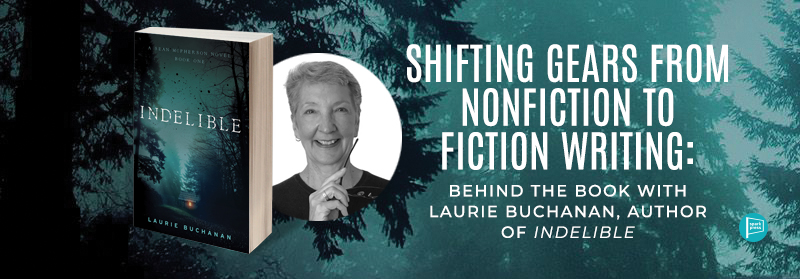
My first two books, Note to Self: A Seven-Step Path to Gratitude and Growth, and The Business of Being: Soul Purpose In and Out of the Workplace, were a delight to write. At the time, I had a private practice as a holistic health practitioner and transformational life coach. Much of what I wrote came from my experience with clients—their questions and my answers.
Writing and researching nonfiction and fiction are similar yet different:
SIMILARITIES
Ralph Waldo Emerson said, “All history is biography.” Nonfiction shares fiction’s basic requirements: believable characters, a fantastic plot, a captivating setting, conflict aplenty, and a compelling voice.
Whether nonfiction or fiction, researching the project is half the fun! The writer gets to examine a world that either:
- Already exists and is waiting for you to uncover details
- Is nonexistent and begging for creation
And while many authors write in a vacuum, most of us don’t research in a vacuum. We go beyond documentation—out into the field—and engage our senses while hunting for storyline treasure.
For accuracy’s sake, many authors talk with experts. For instance, with Indelible, the first book in the Sean McPherson novels, I spoke with a detective in the Major Crimes Unit of the Idaho State Police, a DNA specialist at the Idaho State Police Crime Lab, and a forensic pathologist.
For book two, Iconoclast, I’m currently leveraging a real-life private investigator’s experiential knowledge, and I’ve additionally talked with a thoracic surgeon to ensure that my information is accurate.
For fiction and nonfiction writing projects, I keep a journal with me at all times (and on my nightstand), so I can immediately record my thoughts and discoveries.
I also leverage the knowledge of my local research librarians. They’re fantastic way-showers!
Organization—a system for keeping track of everything—is another similarity shared by nonfiction and fiction writers. There’s no “right” way. Each of us has (or is looking for) a system that works for us. For instance, I created a “Character Bible” that informs me of each character’s name, age, hair/eye color, height, weight, nationality, spiritual tradition, ad infinitum…
DIFFERENCES
With nonfiction, the author is writing about preexisting, tangible, verifiable facts. The topic can be researched in books, magazines, newspapers, online, location visits, genealogists, and interviews with subject matter experts.
With fiction, the characters, storyline, and sometimes even the world the story takes place in, are not preexisting. Every aspect of the author’s writing comes out of their head, their imagination. The story is birthed as they write.
With nonfiction, I was satisfied to write in short bursts.
It’s turned out, at least for me, that’s not the case with fiction. When I enter my writing studio to work on a Sean McPherson novel, it’s akin to Alice slipping down the rabbit hole. I pack my mental bags and prepare for the long haul because I know I’m going to get caught up in the location, characters, and storyline—become part of it.
And though writing nonfiction was incredibly satisfying, for me, it’s not “juicy.” There’s something utterly delicious about “playing God” and “world-building”—creating something of substance from absolute scratch in fiction writing.
I’m glad I started with nonfiction because it made me a stronger writer. I learned to research down to the gnat’s whisker. No stone was left unturned. That excellent stone-turning habit is like a great gym workout that develops strong writing muscles that are just as important in fiction writing.
“May your pens never run out of ink, your computer never run out of power, and your brain never run out of brilliant ideas.” ―JESSICA LAVE, Quiet on the Set: A Novel
BIO
A cross between Dr. Dolittle, Nanny McPhee, and a type-A Buddhist, Laurie Buchanan is an active listener, observer of details, payer of attention, reader and writer of books, kindness enthusiast, and red licorice aficionado.
Her books have won multiple awards, including the Foreword INDIES Book of the Year Gold Winner and the International Book Award Gold Winner.
She and her husband live in the Pacific Northwest, where she enjoys long walks, bicycling, camping, and photography—because sometimes the best word choice is a picture.
To learn more, please visit Laurie’s website at www.lauriebuchanan.com.

Great post, Laurie! Very helpful to writers. Thank you!